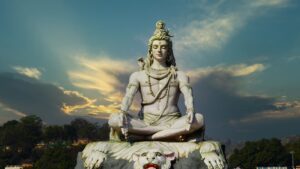Maha Shivaratri, also known as the “Great Night of Shiva,” is one of the most significant and celebrated Hindu festivals. It honors Lord Shiva, the destroyer of evil and the embodiment of transformation. Maha Shivaratri falls on March 8, 2024, this year. Let’s delve into the date, time, auspicious timings (muhurats), rituals observed, and significance of this grand celebration.
Mahurat: The Auspicious Timings for Puja
|
Tithi |
Date and Time |
|
Mahashivratri Celebration |
March 8, 2024 |
|
Chaturdashi Tithi Begins |
March 8, 2024 – 09:57 PM |
|
Chaturdashi Tithi Ends |
March 9, 2024 – 06:17 PM |
|
Ratri First Prahar Puja |
March 8, 2024 – 05:54 PM to 08:56 PM |
|
Ratri Second Prahar Puja |
March 8, 2024 – 08:56 PM to 11:57 PM |
|
Ratri Third Prahar Puja |
March 8, 2024 – 11:57 PM to March 9, 2024 – 02:58 AM |
|
Ratri Fourth Prahar Puja |
March 8, 2024 – 02:58 AM to March 9, 2024 – 06:00 AM |
|
Nishitha Kaal |
March 8, 2024 – 11:33 PM to March 9, 2024 – 12:21 AM |
|
Shivratri Parana |
March 9, 2024 – 06:00 AM to 02:56 PM |
Rituals and Observances: Celebrating with Devotion
Various rituals and observances mark Maha Shivaratri, each holding a deep spiritual meaning.
Here’s a glimpse into some standard practices:
Fasting:
Many devotees observe a full-day fast, refraining from all food and water (Nirjala Vrat) or following a specific diet with fruits, milk, and non-grain items.
Abhishekam (Holy Bath):
Devotees offer a holy bath to the Shiva Linga, typically with water, milk, honey, and bel (bilva) leaves.

Puja and Chanting:
Devotees perform puja rituals, offering prayers and chanting mantras like “Om Namah Shivaya.”
Jagran (Staying Awake All Night):
Devotees stay awake, engaged in prayers, devotional songs (bhajans), and spiritual discourses.
Meditation and Self-reflection:
The night is ideal for meditation and introspection, seeking inner peace and spiritual growth.
Significance: Celebrating the Divine and Seeking Blessings
Maha Shivaratri holds immense significance for Hindus, marking various religious and spiritual aspects. Here are some key reasons why the festival is celebrated:
Honoring Lord Shiva:
The festival primarily celebrates him, paying homage to his divine power and seeking his blessings.
Commemorating the Cosmic Dance:
It is believed that on this night, Lord Shiva performs his cosmic dance (Tandava), representing the cyclical nature of creation and destruction.
Celebrating the Marriage of Shiva and Parvati:
Some traditions associate the day with the celestial wedding of Lord Shiva and Goddess Parvati, symbolizing the union of masculine and feminine energies.
Seeking spiritual upliftment and liberation:
Devotees believe that observing the rituals and austerities on this day can bring spiritual growth, absolve sins, and pave the way for liberation (Moksha).
Maha Shivaratri is a vibrant and spiritual festival that unites devotees in their devotion to Lord Shiva. Whether through fasting, prayer, or meditation, it’s a time for reflection, seeking blessings, and celebrating the transformative power of the divine.